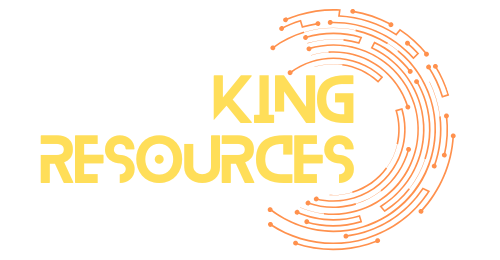Deciding between a mortgage and renting can feel like choosing between a cozy blanket and a fancy new jacket. One keeps you warm and snug while the other makes you look good on the outside. But which option really suits your lifestyle and financial goals?
Table of Contents
ToggleOverview of Mortgage vs Rent
Choosing between a mortgage and renting involves several factors. Each option presents unique advantages and challenges. Homeownership often provides stability and an opportunity to build equity over time. Monthly mortgage payments contribute to owning an asset, while rent typically offers greater flexibility without the responsibilities of property maintenance.
Financial implications play a crucial role in the decision-making process. A mortgage may include property taxes, homeowner’s insurance, and private mortgage insurance, which can increase monthly expenses. Renting usually requires a security deposit and monthly rent but generally eliminates long-term financial commitments associated with homeownership.
Lifestyle considerations matter greatly. A mortgage often suits those planning to stay in one location for several years. Those preferring mobility favor renting shorter-term leases. Market trends can influence choices as well. A high demand for rental properties might sway individuals toward renting, while low mortgage rates can make buying more appealing.
Personal circumstances also shape decisions. Factors such as job stability, family size, and financial goals dictate whether to rent or buy. Those with steady incomes and savings might find homeownership advantageous. Conversely, individuals seeking flexibility or with uncertain job prospects may favor renting. Understanding these dynamics leads to more informed choices in the mortgage versus rent debate.
Pros of Renting

Renting offers several advantages that can appeal to a wide range of individuals. Flexibility stands out as a key benefit, allowing renters to relocate easily for job opportunities or lifestyle changes. Those who frequently travel or prefer exploring different neighborhoods find renting particularly advantageous. Mobility enhances overall lifestyle satisfaction, catering to dynamic living situations.
Lower initial costs make renting an attractive financial option. No large down payment is needed, which can save significant cash upfront. Renters typically face fewer financial burdens, as they avoid property taxes and other ownership-related expenses. Regular monthly rent payments usually simplify budgeting, offering a clearer picture of monthly expenses. This financial accessibility is appealing for young professionals or those just starting their careers.
Pros of Homeownership
Homeownership provides several distinct advantages. Individuals benefit from various aspects that reinforce their financial and personal stability.
Building Equity
Building equity represents a core advantage of homeownership. As homeowners make mortgage payments, they gradually increase their stake in their property. The value of a home often appreciates over time, enhancing the equity built. Homeowners can leverage this equity for loans, renovations, or to finance future investments. Selling the home later can result in significant profits, particularly in a thriving real estate market. Furthermore, this financial growth contrasts sharply with renting, where monthly payments do not contribute to ownership or investment.
Stability and Security
Stability and security are critical factors for many homeowners. Owning a home typically provides a sense of permanence, allowing individuals and families to establish roots in a community. Homeowners enjoy predictability with monthly mortgage payments, contrasting with potential rent increases. This consistency fosters long-term planning and investment in one’s property and neighborhood. Additionally, homeowners avoid the uncertainties of rental agreements, such as the risk of eviction or fluctuating rental prices. Such stability can enhance overall quality of life, creating a nurturing environment for families and individuals alike.
Financial Considerations
Financial aspects play a vital role in the mortgage versus rent comparison. Evaluating costs and potential investments influences the choice between the two options.
Monthly Payments Comparison
Rent typically involves a fixed monthly payment that covers housing without additional property-related expenses. Security deposits generally accompany rental agreements, providing landlords assurance. Mortgages, on the other hand, include monthly payments along with property taxes, homeowners insurance, and possibly private mortgage insurance. Those payments fluctuate based on interest rates and terms, impacting overall affordability. Renters often find budgeting simpler when compared to homeowners, as they can anticipate fixed costs without hidden fees. Additionally, homeowners need to allocate funds for maintenance and unforeseen repairs, which renters typically do not face.
Long-Term Investment Potential
Homeownership frequently builds equity over time, offering financial growth that renting cannot provide. As property values appreciate, homeowners often enjoy increased wealth, particularly in market upswings. Additionally, selling a home may result in significant profits, making homeownership an attractive long-term investment. Renters lack equity accumulation; payments contribute solely to housing without ownership benefits. Most long-term renters experience consistent monthly expenses but miss the potential appreciation in property value. Homeownership aligns closely with financial strategies focused on investment and wealth-building, making it appealing for those planning stable, long-term residence.
Lifestyle Factors
Lifestyle factors significantly influence the choice between renting and mortgage options. Community dynamics and maintenance responsibilities play crucial roles in this decision-making process.
Community and Location
Community and location often determine the ideal living situation. Renters typically enjoy urban environments with easy access to restaurants, events, and public transportation. Many prioritize vibrant neighborhoods for social engagement and convenience, which rentals often provide. Homeowners might seek quieter areas with family-friendly amenities and schools, fostering stability. Proximity to work also influences choices, as renters can quickly relocate for job opportunities while homeowners invest in a location that supports long-term plans.
Maintenance Responsibilities
Maintenance responsibilities vary significantly between renting and owning. Renters typically experience fewer obligations, with landlords handling repairs and upkeep, allowing for straightforward living arrangements. Many enjoy the freedom to focus on personal interests or travel without worrying about home maintenance. Homeowners, however, assume full responsibility for repairs, creating potential for unforeseen costs. They gain control over property modifications and improvements but must also allocate time and resources for upkeep. Balancing these responsibilities often shapes individuals’ decisions based on their lifestyles and preferences.
Choosing between a mortgage and renting is a personal decision that hinges on individual circumstances and goals. Each option presents its own set of benefits and challenges that can significantly impact one’s lifestyle and financial future.
Homeownership offers stability and the chance to build equity while renting provides flexibility and lower initial costs. Understanding these differences allows individuals to make informed choices that align with their priorities.
Ultimately, whether one opts for the cozy blanket of homeownership or the fancy jacket of renting, it’s essential to evaluate personal needs and market conditions to find the best fit.









